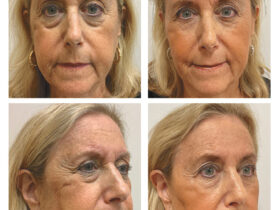By Tom Everts PA-C, IFMCP
Over 12 percent of people in the United States will end up developing a thyroid condition in their lifetime. About 60 percent won’t realize they have a condition. One in eight will be women. The associated risks are not benign, and include impact on fertility and pregnancy, as well as cardiovascular disease.
The thyroid has influence on every cell in our body, yet the cause of thyroid disease is mostly unknown. The interaction between our genetics and environment appear to play a role. It is how these two factors interact within our physiology that determine the likelihood of developing a thyroid condition.
The thyroid can dysfunction in two different way. It can be triggered to produce excessive amounts of thyroid hormone, a condition known as hyperthyroidism. Symptoms include unintentional weight loss, rapid and irregular heart beat, nervousness and increased appetite. On the other hand, the thyroid could not be producing enough thyroid hormone, a condition known as hypothyroidism. Symptoms include fatigue, weight gain, sensitivity to cold, dry skin and constipation. We will focus on hypothyroidism, as it is most common.
Thyroid autoimmunity is a condition where the body fights the thyroid gland as it would a virus or bacteria. The autoimmune conditions known as Grave’s disease and Hashimoto’s thyroiditis, represent the majority of hyperthyroid and hypothyroid cases, respectively. This means that most people diagnosed with these conditions have autoimmunity.
Autoimmunity is not often included in a thyroid workup. The conventional approach to an autoimmune thyroid condition is no different than the approach of a “typical” thyroid condition. However, there may actually be some things we can do to reduce the impact of autoimmunity – more on this later.
As a clinician in a fast-paced family practice for many years, the formula for managing hypothyroidism was this: check thyroid labs every 6-8 weeks, adjust medication if needed, repeat until stable. We assume that the numbers from the lab tell us everything we need to know to make a clinical decision.
But there’s a problem with this… You are not a number!
No one asked how you were feeling on your current dose of medication. Everyone is different. The “normal” lab ranges may work for you, but they may not.
The typical labs used to screen and monitor thyroid conditions don’t provide the full picture. These labs include TSH (thyroid stimulating hormone), a hormone that tells the thyroid whether or not to secrete thyroid hormone, and T4, one of the thyroid hormones.
A brief overview of thyroid hormone physiology:
1. Your brain receives signals from the body that you need more thyroid hormone.
2. The pituitary releases TSH, which tells the thyroid to turn up thyroid hormone production.
3. T4 is released from the thyroid gland and then can be converted into T3, the more active hormone, or reverse T3, which is inactive.
4. Increased levels of thyroid hormone in the blood provides a negative feedback to the brain, which turns down TSH release, and thus decreases thyroid hormone production.
This process is important to understand because how you are converting T4 into T3, or reverse T3, can make all the difference in how you are feeling. When labs are reviewed, levels of TSH and T4 could appear normal while you continue to express symptoms of hypothyroidism because you aren’t converting T4 effectively.
Recommended thyroid labs: TSH, T4, free T4, T3, free T3, reverse T3, thyroid autoimmune antibodies.
Getting these labs can paint a better picture and, if addressed appropriately, may help anyone feeling like their symptoms are not yet managed.
Addressing the root cause is critical, and in the case of thyroid hormone conversion (T4 into T3), selenium and zinc play a key role. Stress, inflammation and toxins push thyroid conversion toward reverse T3, while exercise and vitamin A improve your body’s sensitivity to thyroid hormones.
What about autoimmunity?
Start with the gut. Intestinal permeability, or leaky gut, increases the risk of developing autoimmune disease. The intestines are only one cell thick! So making sure the intestinal barrier is healthy. This can be done by 1) addressing sources of inflammation such as food allergies, dysbiosis and gluten, 2) targeted probiotics and 3) providing supportive nutrients like fresh fruits and vegetables, bone broth, and L-glutamine.
It’s frustrating to have a thyroid condition that isn’t managed appropriately. So get curious! Ask questions. Get all the information. Your body can do amazing things when you give it the support it needs to thrive.
Linell King MD, renowned internist and author of “Mastering Vitality” received his medical degree from the University Of Wisconsin School Of Medicine, and completed his residency at The Johns Hopkins University Sinai Hospital Program of Internal Medicine. He has been practicing for twenty years; currently at his “Naples Vitality” office in Naples, FL.
Our practice size is limited to ensure the best possible care for our clientele; we qualify and accept patients committed to working collaboratively to create improved health and continued success.
Naples Vitality
239-465-0098
www.Naplesvitality.com
3411 Tamiami Trail N. Suite 200
Naples, FL 34103









